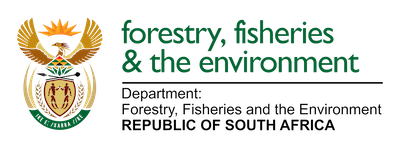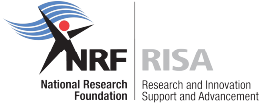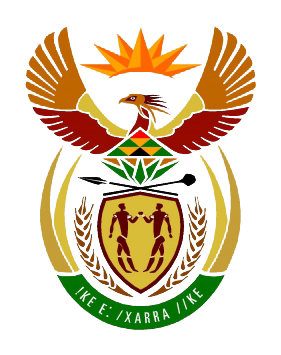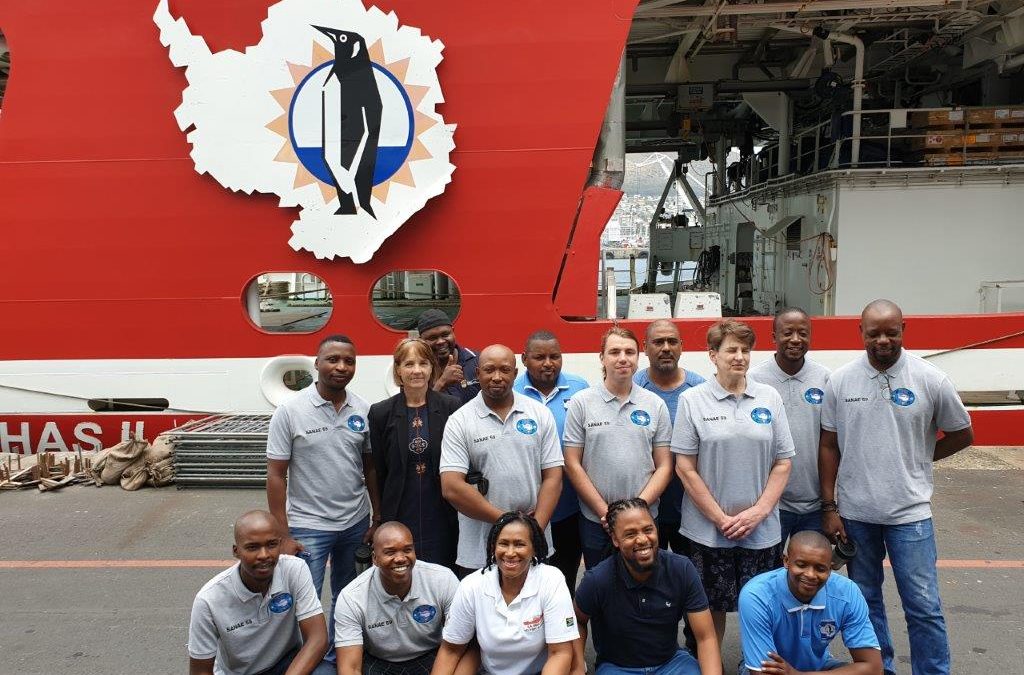
by Ria Olivier | Apr 15, 2020 | Antarctica, Environment, Research, Take-Over Operations
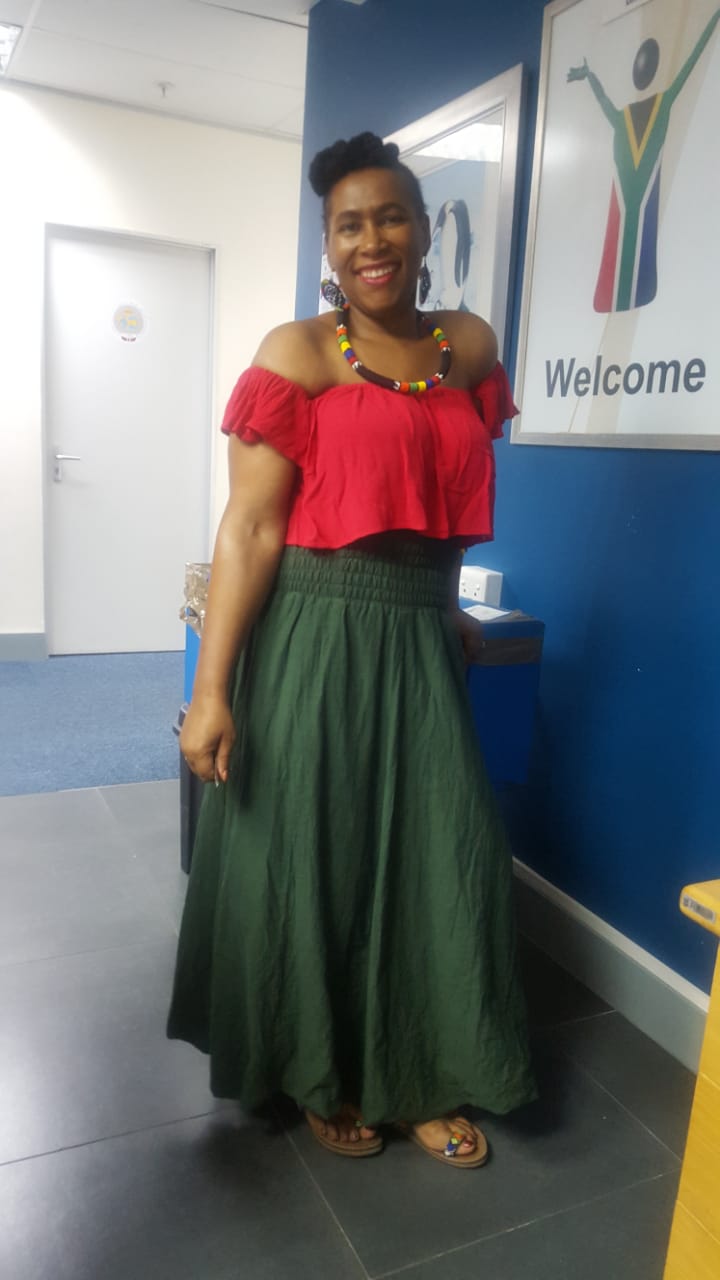
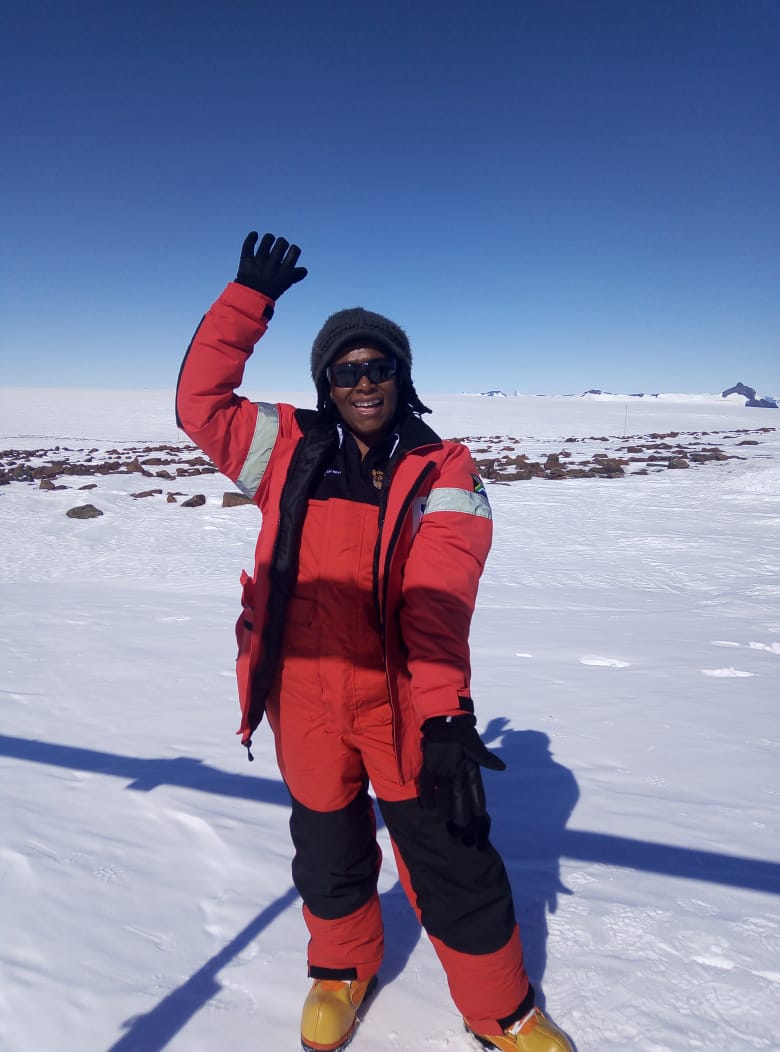 My name is Khuselwa a.k.a. Kusi Ngxabani, Deputy Director: Vessel and Helicopter Management with effect from 01 September 2019. I joined the erstwhile Department of Environmental Affairs & Tourism in 1997 as an Administrative Clerk, in the Directorate: Antarctica and Islands, was promoted to Senior Administration Officer in 2003 and later promoted to the Assistant Director: Scientific Liaison and Administration Support position in the same directorate from 1 April 2008 to 31 May 2015. My directorate is dealing specifically with the South African National Antarctic Programme (SANAP). SANAP’s mandate is to provide logistical support to Researchers (Scientists). From 01 June 2015 I was promoted Deputy Director, heading the Sub-directorate: Travel and Fleet Services in the Directorate: Facilities and Administration Services (Cape Town) within the department. I served the aforementioned directorate until 31 August 2019.
My name is Khuselwa a.k.a. Kusi Ngxabani, Deputy Director: Vessel and Helicopter Management with effect from 01 September 2019. I joined the erstwhile Department of Environmental Affairs & Tourism in 1997 as an Administrative Clerk, in the Directorate: Antarctica and Islands, was promoted to Senior Administration Officer in 2003 and later promoted to the Assistant Director: Scientific Liaison and Administration Support position in the same directorate from 1 April 2008 to 31 May 2015. My directorate is dealing specifically with the South African National Antarctic Programme (SANAP). SANAP’s mandate is to provide logistical support to Researchers (Scientists). From 01 June 2015 I was promoted Deputy Director, heading the Sub-directorate: Travel and Fleet Services in the Directorate: Facilities and Administration Services (Cape Town) within the department. I served the aforementioned directorate until 31 August 2019.
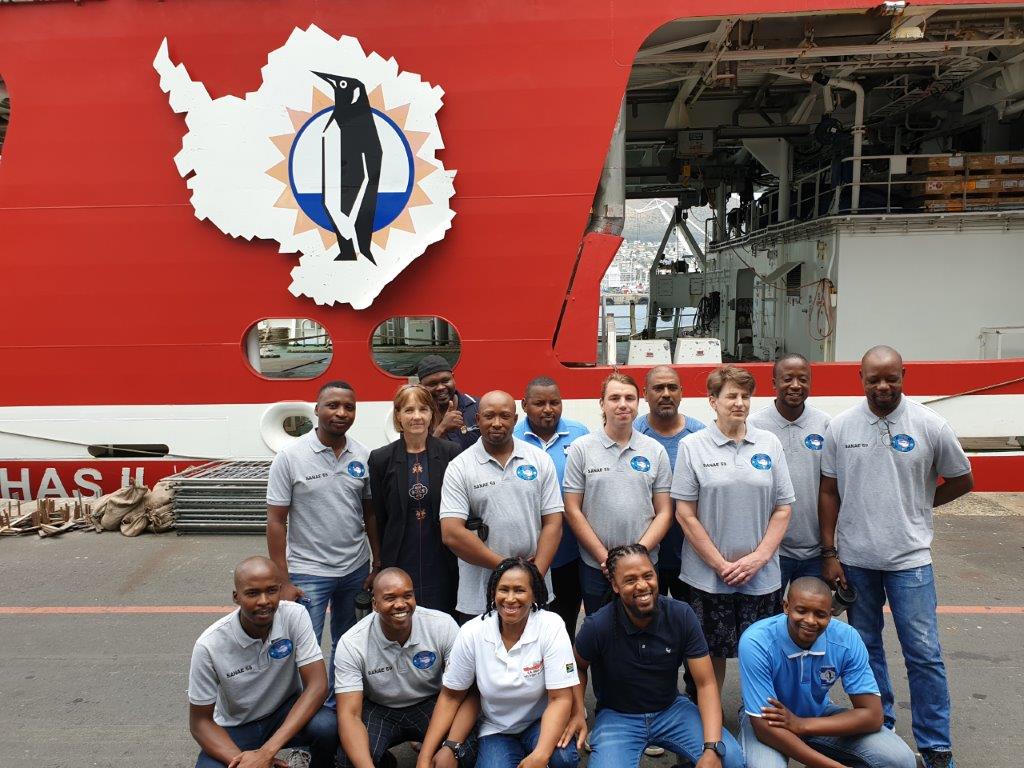 What drives your passion in the job you do in the department? (Image Kusi with departure of SANE59)
What drives your passion in the job you do in the department? (Image Kusi with departure of SANE59)
One thing one should know is that you can take the girl out of SANAP but you cannot take SANAP out of the girl. I just love working with people. All the reason when opportunity presented itself to return to the Directorate: Southern Oceans and Antarctic Support to contribute to SANAP I did not think twice but grabbed it with both hands. It was no promotion but a lateral transfer. The positive and pleasant attitude of the people you work with gets you through the day. You know that feeling that whatever situation you come across, you can actually grab the bull by its horns and conquer anything. I came back to a different Sub-directorate with different responsibilities than what I was doing prior to leaving in 2015. For now it feels like a mammoth task but with my dedication and zeal I know I will make it, I’ll take it one step at a time. The thought of making a difference in the lives I touch with people I serve and work with is enormous.
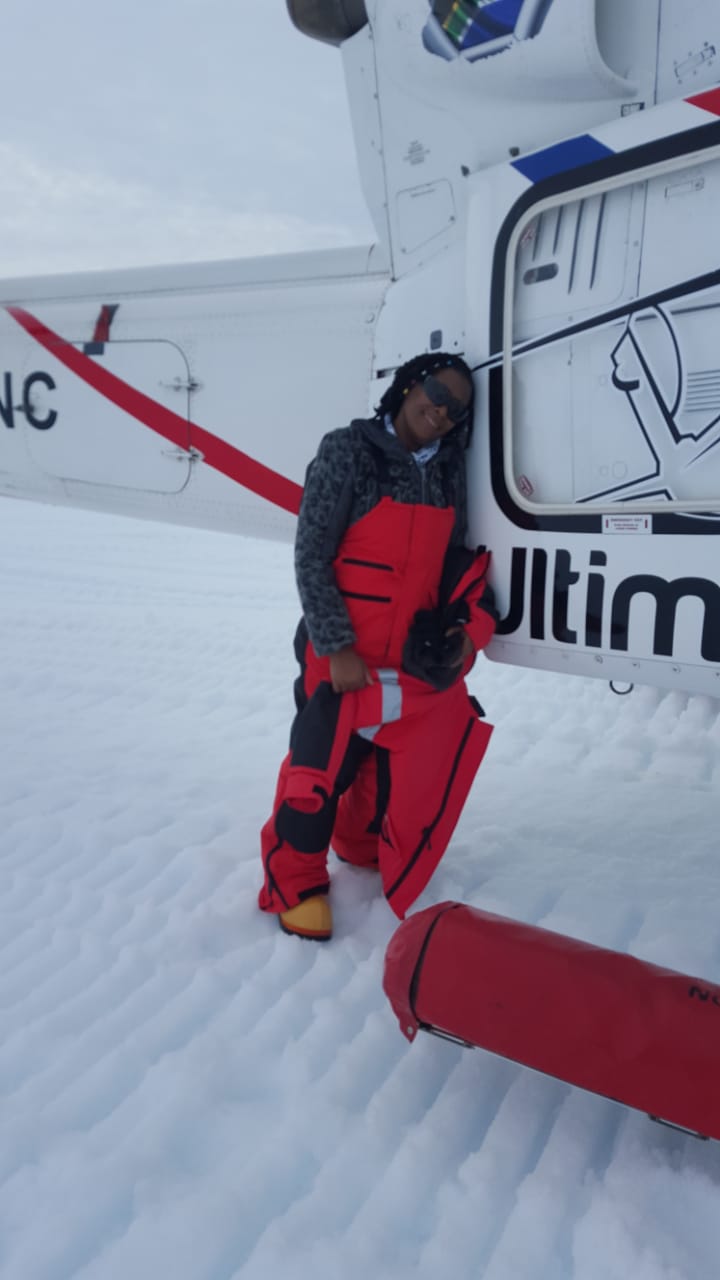
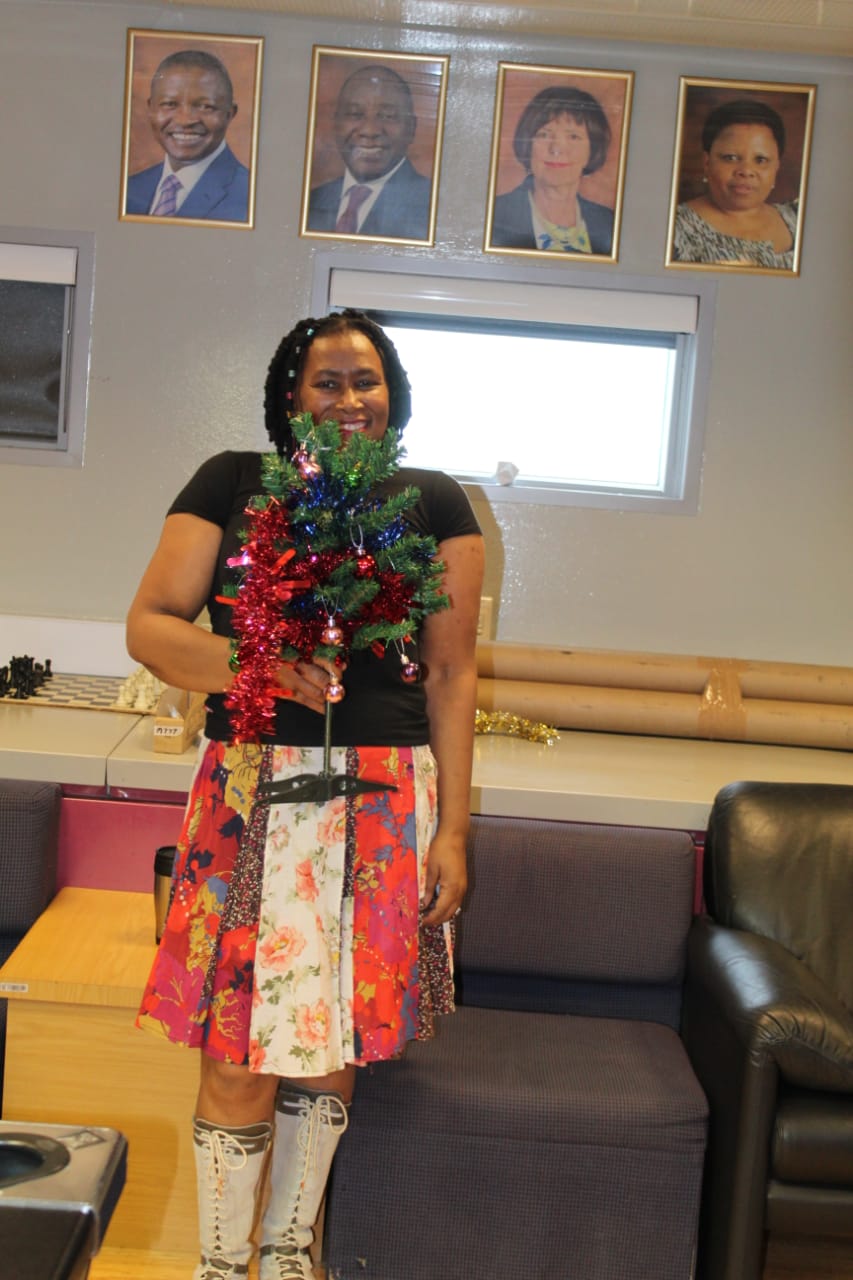 What do you find most challenging and rewarding about working within SANAP?
What do you find most challenging and rewarding about working within SANAP?
The most challenging aspect of my job is when people make their poor planning my priority. For an example, my most recent relief voyage to Antarctica as a Departmental Coordinating Officer (after 7 years) came with challenges especially with the supply of goods. Some people do not have sense of urgency and that could be detrimental to any relief voyage which has a scheduled date of departure and return. What is rewarding however, is the fact that my contribution to the department and SANAP has an enormous impact on the performance of others. In addition, to have a lot of work, feel you are ‘snowed under’ but leave the work place having that fulfilment that you have met the target you set for yourself, having made a difference in one way or the other. Being involved in organising departmental activities gives me adrenalin rush and even most rewarding when the functions are successful. I am usually asked to be Programme Director for events within the department. See interview with Kusi at SANAE IV during takeover 2019-2020
What do you consider to be your greatest achievements in your career life thus far?
To be appointed as the first Black Woman Departmental Coordinating Officer (DCO) for the 2006 Marion Island relief voyage. What an experience and achievement. Having studied Part-time and graduated in National Diploma: Public Management and later B-Tech: Public Management. Those were the tough four (4) years of my life as leaving work at 16:00 to be in class from 17:00 until after 21:00 was no walk in the park. Had I studied at a younger age, by now I would have been further in my career, however, as a single parent I do not regret opting to raise my son first. He means the world to me; he is the Apple of my eye.
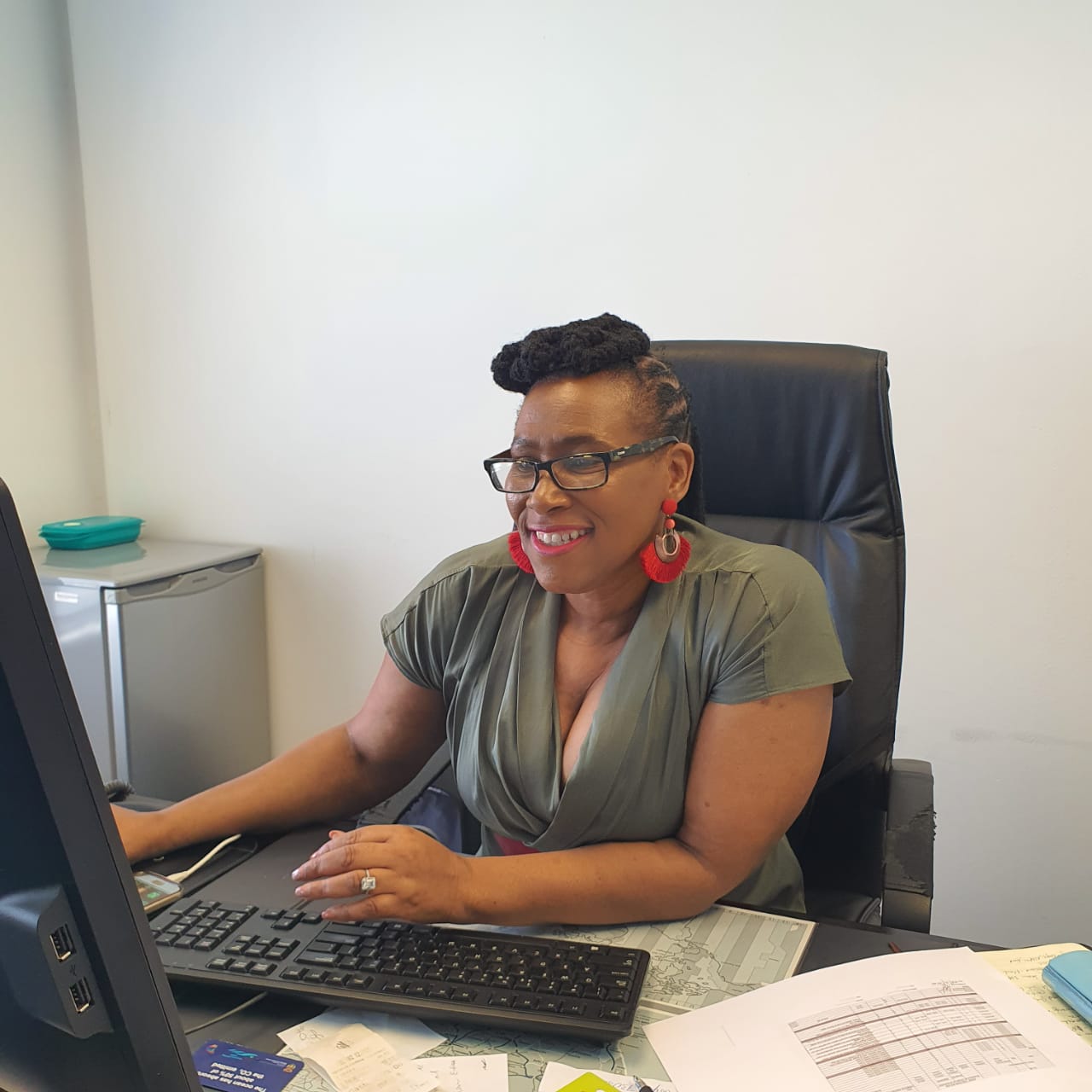 What would your advice be to those who want to follow the same career path as you?
What would your advice be to those who want to follow the same career path as you?
When afforded an opportunity grab it with both hands and make the best out of it. Keep pushing and strive for high ideals and remember, Rome was not built in a day. Letta Mbulu sings “…and the road will be muddy and rough, we will get there you know just how we will get there, we know we will carry on…” There is a saying that curiosity once killed a cat but in the career field I stand to differ with that notion. Always have hunger for knowledge, be curious, further your studies and you will realise that only the sky is the limit! In the workplace I live with the words of Max Ehrmann in his ‘Desiderata’, “Listen to others, even to the dull and the ignorant, they too have their story. Avoid loud and aggressive persons; they are vexations to the spirit”. From a person extract what is positive and inspiring and leave the rest. Always keep your head above water, keep the faith and never stop praying
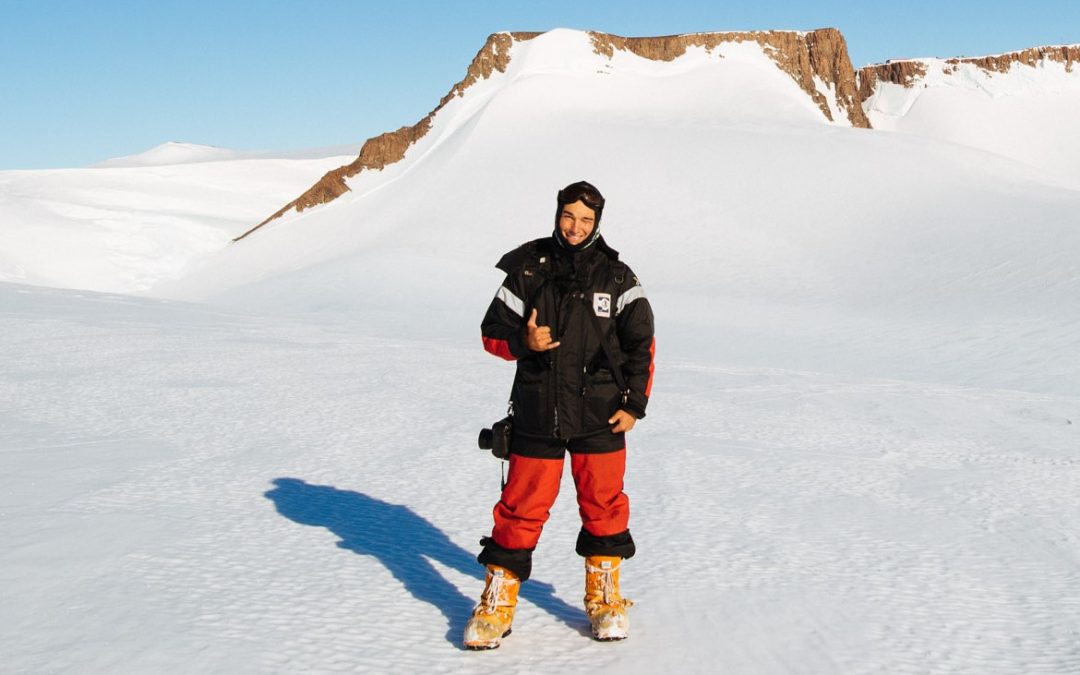
by Ria Olivier | Mar 20, 2020 | Antarctica, Discover, Environment, SANAE, SANAP, SEAmester, Take-Over Operations
Our mid-Month Series also include those people that has become part of the SANAP community and do a lot of 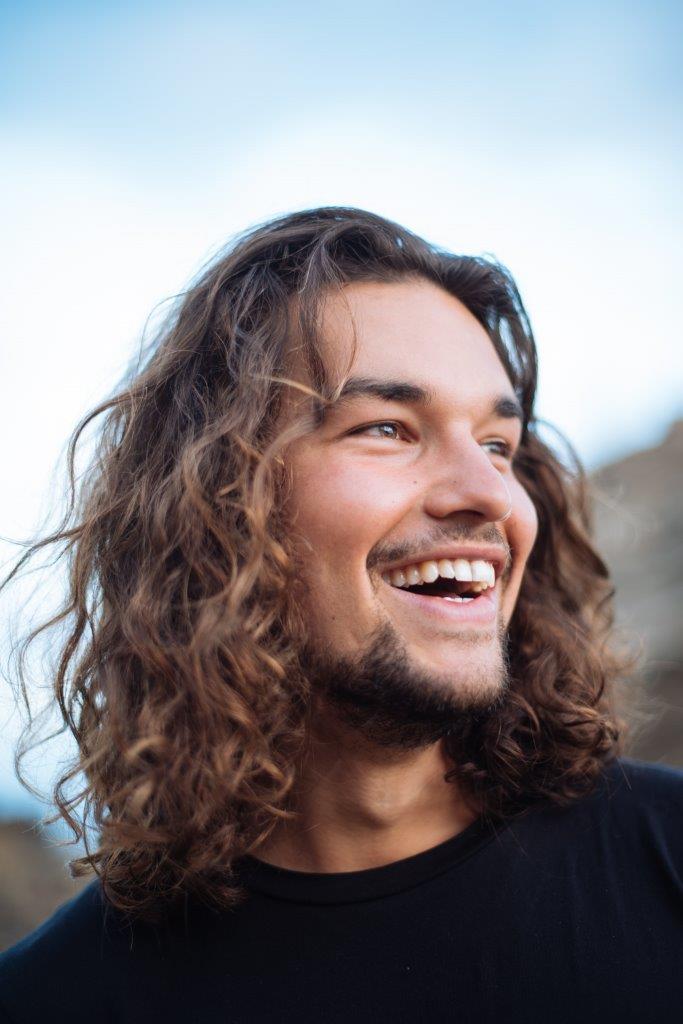 freelance and volunteer work for SANAP. Alexander Oelofse is becoming a well-known name within the SANAP community. His videos of SEAmester give a real insight to the SEAmester program. ALSA
freelance and volunteer work for SANAP. Alexander Oelofse is becoming a well-known name within the SANAP community. His videos of SEAmester give a real insight to the SEAmester program. ALSA 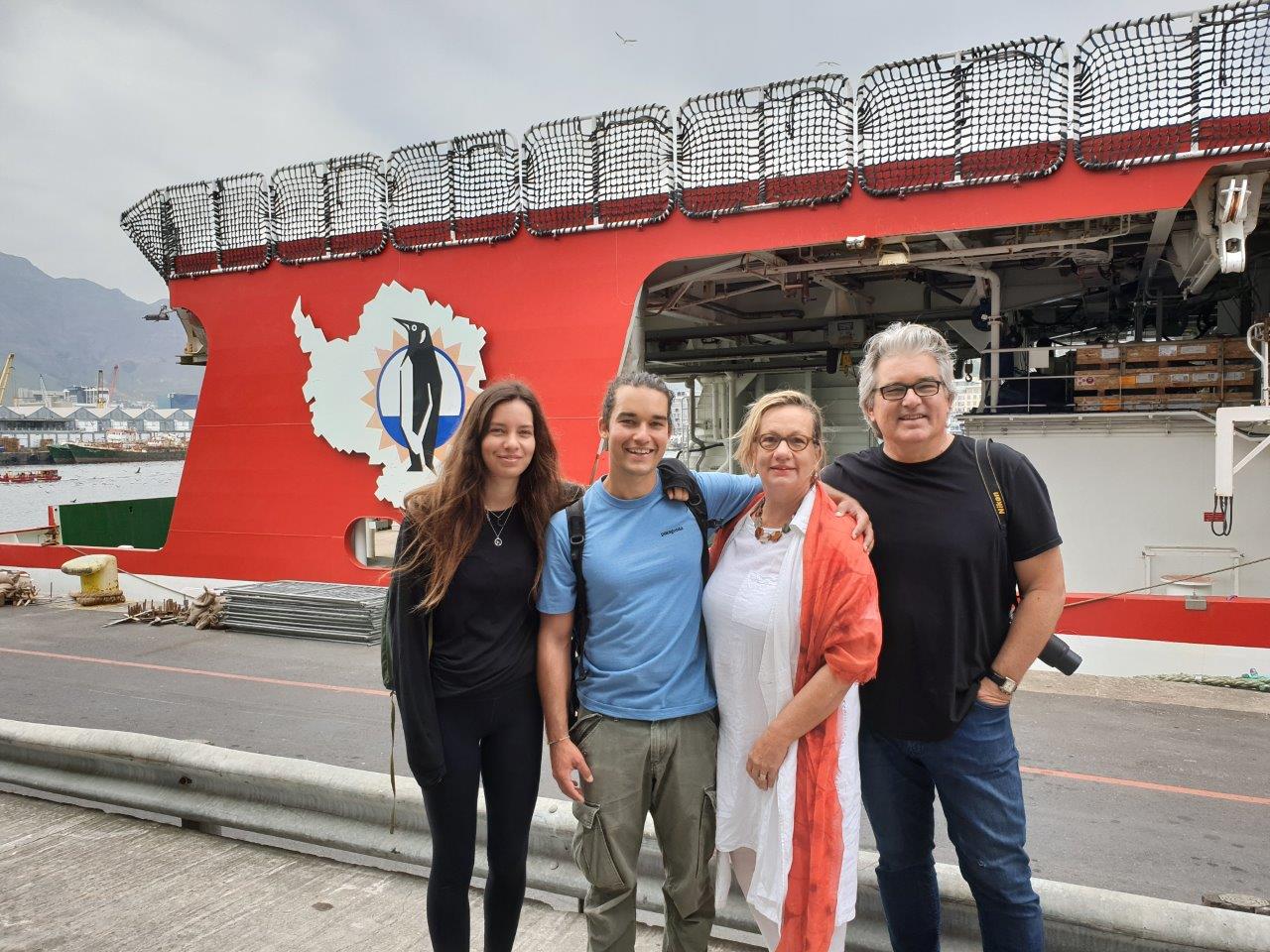 realized that as freelancer he can be of great service to the community and to ALSA. During the Departure of SANAE59 an agreement was reached to compile videos during takeover. Ria Olivier met with him after his expedition at Iziko during the Sentinels of the South exhibition launch and possibilities were discussed of his contributions toward the Antarctic legacy of our country.
realized that as freelancer he can be of great service to the community and to ALSA. During the Departure of SANAE59 an agreement was reached to compile videos during takeover. Ria Olivier met with him after his expedition at Iziko during the Sentinels of the South exhibition launch and possibilities were discussed of his contributions toward the Antarctic legacy of our country.
ALSA asked him when he got interested in photography?
What started off as a childhood dream turned into a reality on the 2019/2020 Antarctic relief voyage. I have always had a deep love for the ocean and knew from a young age 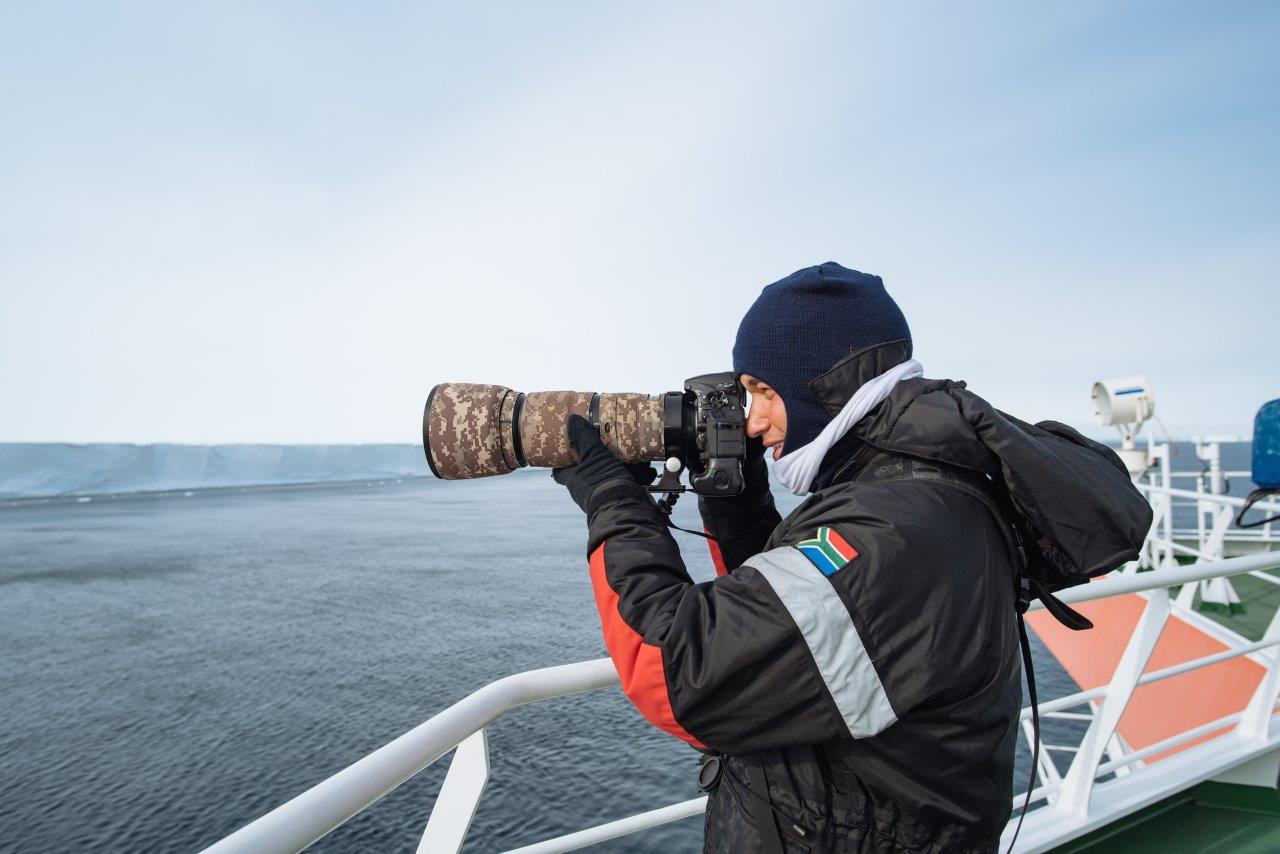 that I would want to be in, or surrounded, by the ocean as much as possible. I wanted to study marine biology for a long time. Until job shadowing a marine biologist and realising much of the work would be lab-based. I couldn’t imagine that for myself. I then decided to pursue my other passion; photography. Being a member of the photographic society in high school sparked my interest. This led to me studying fine art photography at Michaelis in Cape Town. At Michaelis, I continued to create art centering around the environment.
that I would want to be in, or surrounded, by the ocean as much as possible. I wanted to study marine biology for a long time. Until job shadowing a marine biologist and realising much of the work would be lab-based. I couldn’t imagine that for myself. I then decided to pursue my other passion; photography. Being a member of the photographic society in high school sparked my interest. This led to me studying fine art photography at Michaelis in Cape Town. At Michaelis, I continued to create art centering around the environment.
How did he become involved in SANAP?
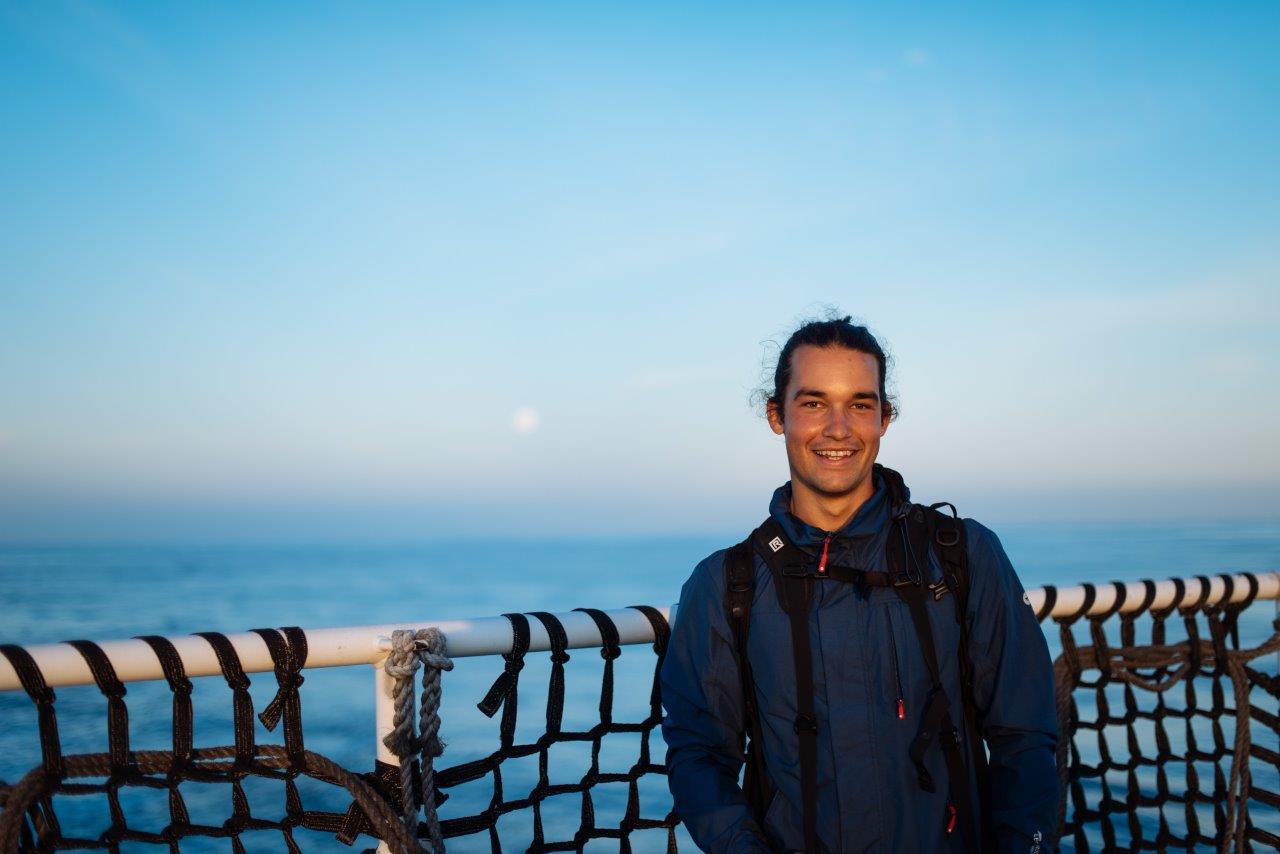 While at University I already started trying to find a way onboard the S.A. Agulhas II. I had to see this stark, extreme and yet breathtakingly beautiful landscape for myself. It took a few years of applying, without succeeding, until I could get onboard the SEAmester III as a lecturer after my studies. Onboard students from various universities around South Africa get the opportunity to experience oceanographic research at its best, out in the field, onboard the S.A. Agulhas II. To have the privilege to experience SEAmester as a student must be absolutely amazing, but more importantly, the eye-opening experience that can lead some students to follow their passions in the marine studies field.
While at University I already started trying to find a way onboard the S.A. Agulhas II. I had to see this stark, extreme and yet breathtakingly beautiful landscape for myself. It took a few years of applying, without succeeding, until I could get onboard the SEAmester III as a lecturer after my studies. Onboard students from various universities around South Africa get the opportunity to experience oceanographic research at its best, out in the field, onboard the S.A. Agulhas II. To have the privilege to experience SEAmester as a student must be absolutely amazing, but more importantly, the eye-opening experience that can lead some students to follow their passions in the marine studies field.
Opportunity to go to Antarctica:
After doing two SEAmester Expeditions the opportunity came up to go down to Antarctica with UCT. He grabbed the opportunity with both hands. 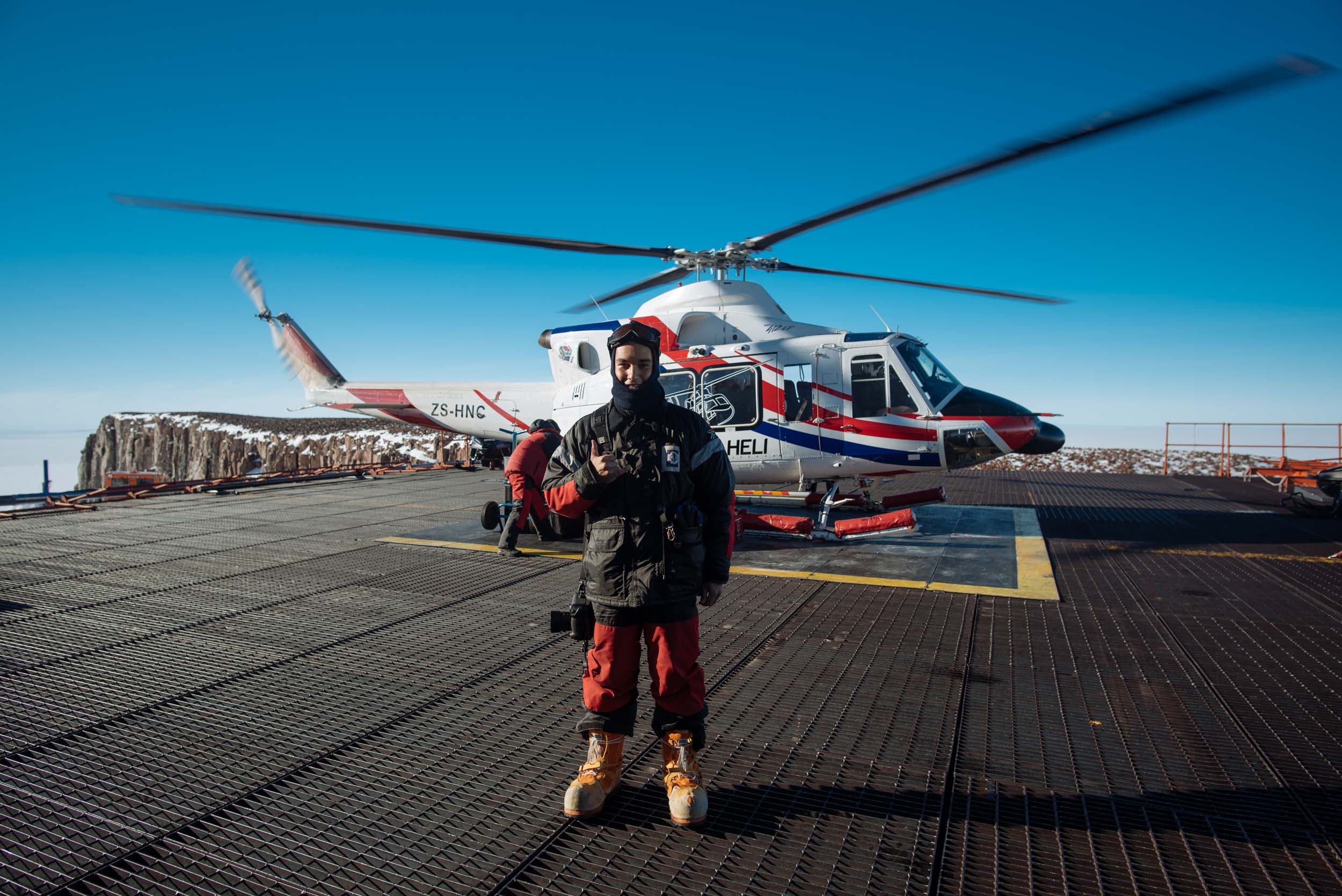 He departed on the first leg of the relief voyage of 2019/2020. I can’t really say I had any expectations, to be frankly honest. AS he has never seen a place like the Antarctica and not having any expectations, it lead to some of his best experiences. He admits that sailing down for 9 days to reach the ice shelf definitely adds to the anticipation and the surprise that is Antarctica. Visit his website to see his collection of Antarctic Images
He departed on the first leg of the relief voyage of 2019/2020. I can’t really say I had any expectations, to be frankly honest. AS he has never seen a place like the Antarctica and not having any expectations, it lead to some of his best experiences. He admits that sailing down for 9 days to reach the ice shelf definitely adds to the anticipation and the surprise that is Antarctica. Visit his website to see his collection of Antarctic Images
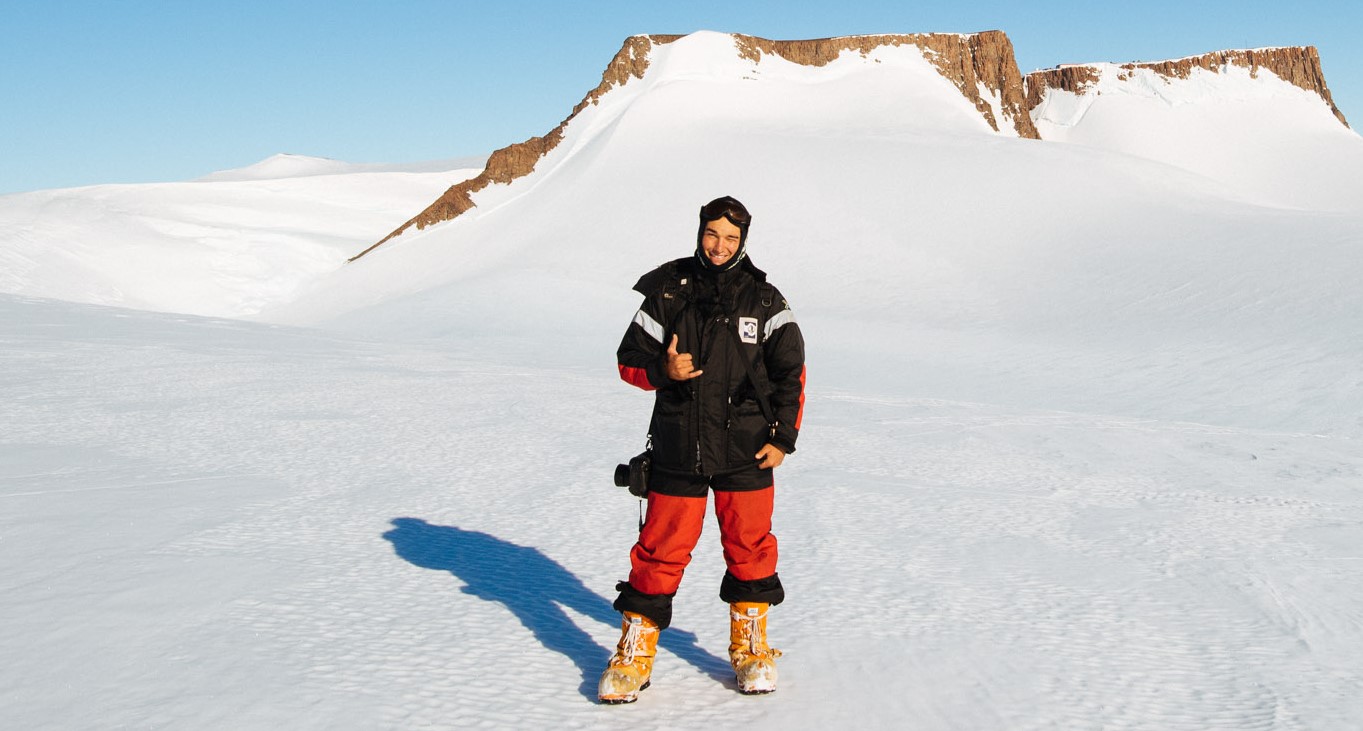 “Seeing the ice shelf for the first time left me speechless. I became quite emotional, realising my dream had come true”.
“Seeing the ice shelf for the first time left me speechless. I became quite emotional, realising my dream had come true”.
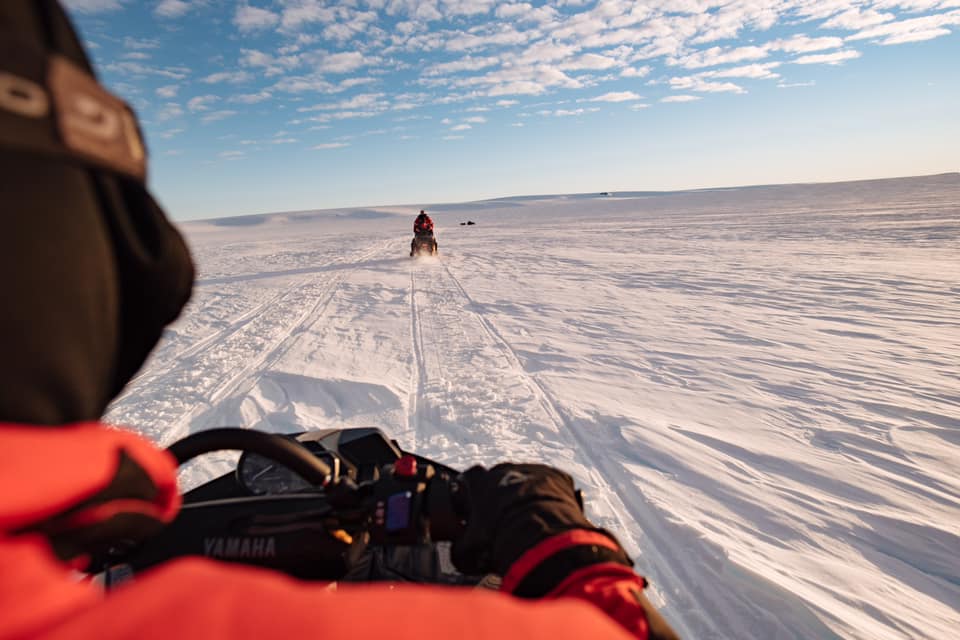 “One of my highlights was getting to sit on the back of a snowmobile and traverse the snowy landscapes. Being the passenger allowed me to, despite the icy breeze, absorb the sublime landscapes that we passed through. This image was captured at 02:00 am. You could see the sun dip ever so slightly but never setting. I could get used to that. It made life seem endless, like there was no rush”
“One of my highlights was getting to sit on the back of a snowmobile and traverse the snowy landscapes. Being the passenger allowed me to, despite the icy breeze, absorb the sublime landscapes that we passed through. This image was captured at 02:00 am. You could see the sun dip ever so slightly but never setting. I could get used to that. It made life seem endless, like there was no rush”
Alex Oelofse is looking forward to working alongside ALSA to inspire youth and spread the information about the amazing program that South Africa runs all the way down in Antarctica.
His contributions will soon be available on the ALSA archive and see in next Mid-Month series one of his videos.
All Images copyright Alexander Oelofse
Visit his website https://www.alexanderoelofse.com/ and Instagram
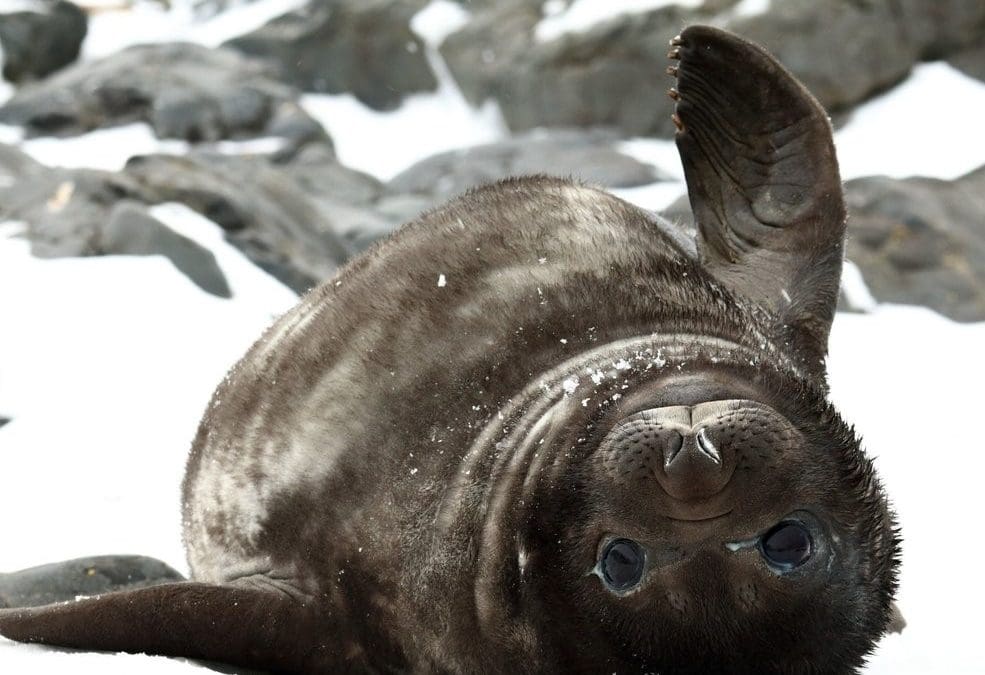
by Ria Olivier | Mar 3, 2020 | Antarctica, Environment, Gough Island, Marion Island, Research, SANAE, SANAE Gallery, Science, Southern Ocean
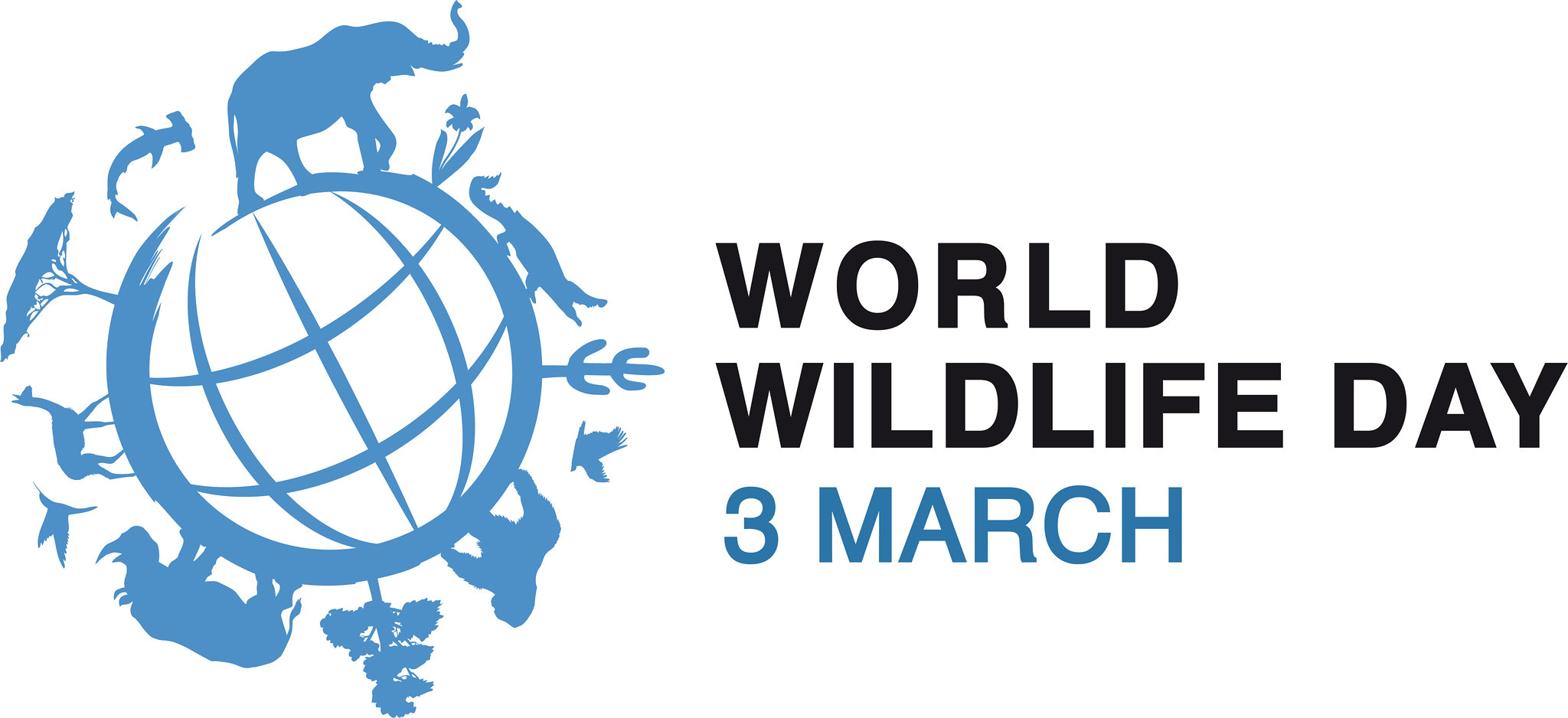 On World Wildlife Day 2020, we will celebrate the special place of wild plants and animals in their many varied and beautiful forms as a component of the world’s biological diversity. World Wildlife Day in 2020 is celebrated under the theme “Sustaining all life on Earth”, encompassing all wild animal and plant species as key components of the world’s biodiversity. This aligns with UN Sustainable Development Goals 1, 12, 14 and 15, and their wide-ranging commitments on alleviating poverty, ensuring sustainable use of resources, and on conserving life both on land and below water to halt biodiversity loss. On 20 December 2013, at its 68th session, the United Nations General Assembly (UNGA) proclaimed 3 March – the day of signature of the Convention on International Trade in Endangered Species of Wild Fauna and Flora (CITES) in 1973 – as UN World Wildlife Day to celebrate and raise awareness of the world’s wild animals and plants.
On World Wildlife Day 2020, we will celebrate the special place of wild plants and animals in their many varied and beautiful forms as a component of the world’s biological diversity. World Wildlife Day in 2020 is celebrated under the theme “Sustaining all life on Earth”, encompassing all wild animal and plant species as key components of the world’s biodiversity. This aligns with UN Sustainable Development Goals 1, 12, 14 and 15, and their wide-ranging commitments on alleviating poverty, ensuring sustainable use of resources, and on conserving life both on land and below water to halt biodiversity loss. On 20 December 2013, at its 68th session, the United Nations General Assembly (UNGA) proclaimed 3 March – the day of signature of the Convention on International Trade in Endangered Species of Wild Fauna and Flora (CITES) in 1973 – as UN World Wildlife Day to celebrate and raise awareness of the world’s wild animals and plants.
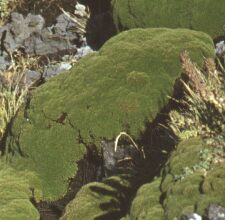
Azorella selago (Photo Credit: Niek Gremmen)
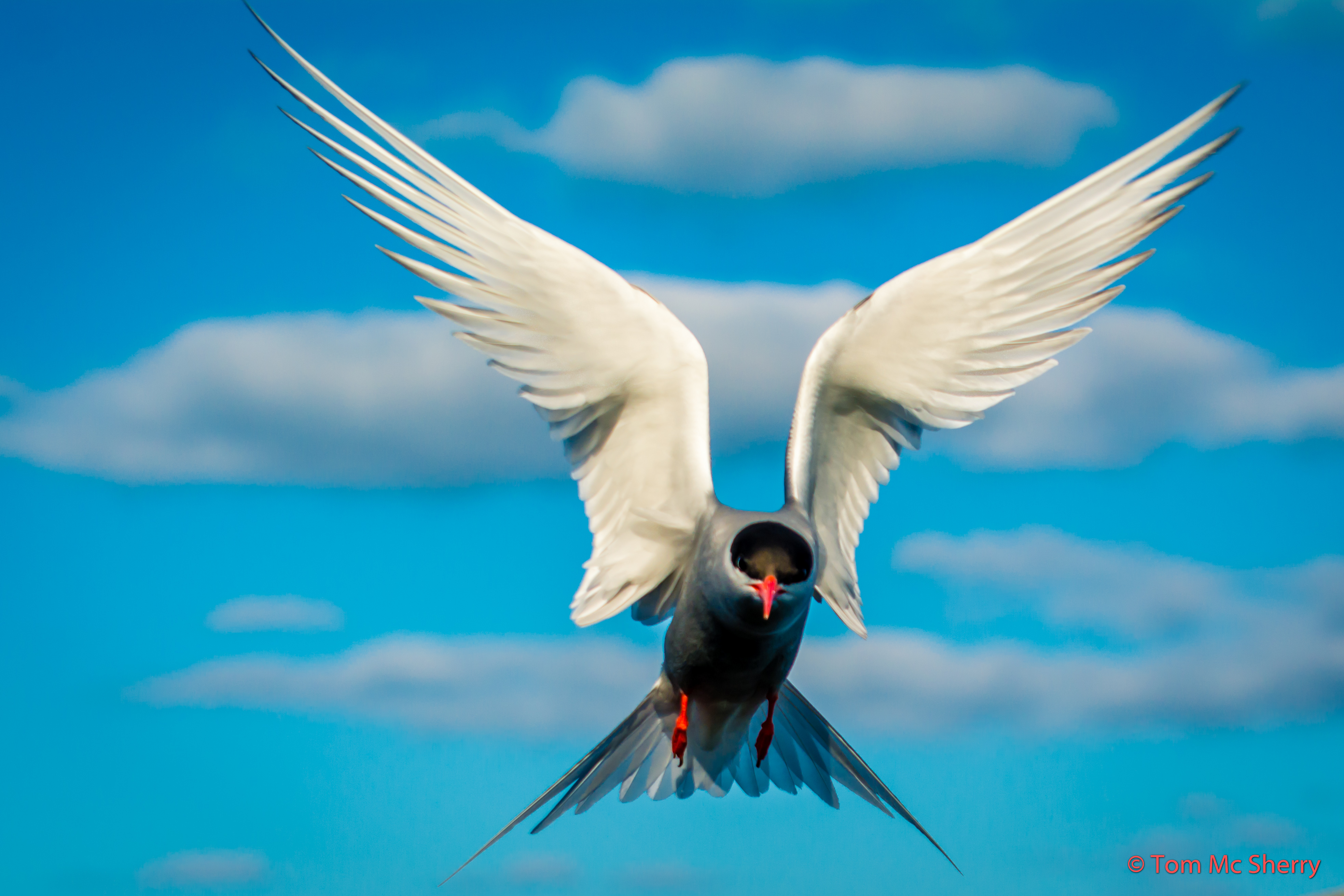
Antarctic Tern (Photo Credit: Tom McSherry)
The South African National Antarctic Programme (SANAP) plays a crucial role in conserving this living laboratory – – the coldest, windiest and driest place on Earth. Studies done in the Antarctic, sub-Antarctic and Southern Ocean are inextricably linked to our understanding of the entire Earth system and signals in Antarctica indicate past and future global changes. SANAP recognises the global and national importance of safeguarding the environment of the Antarctic and Southern Ocean and protecting the integrity of ecosystems, both marine and terrestrial, in the region.
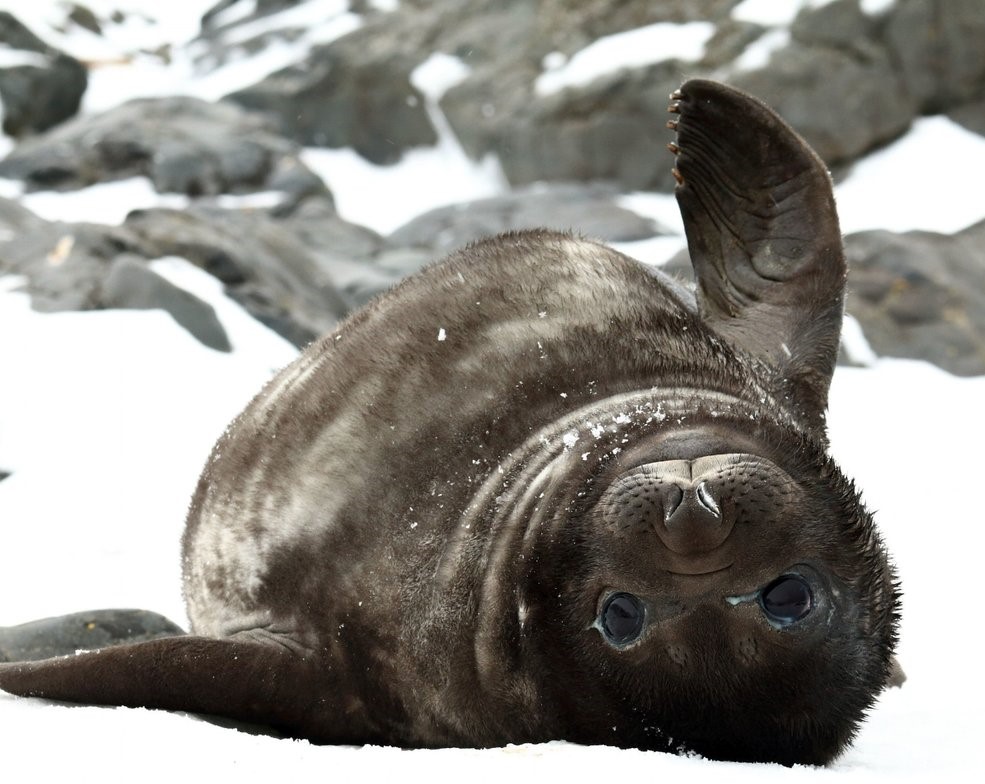
Weddell Seal – Photo Credit: Chris Oosthuizen
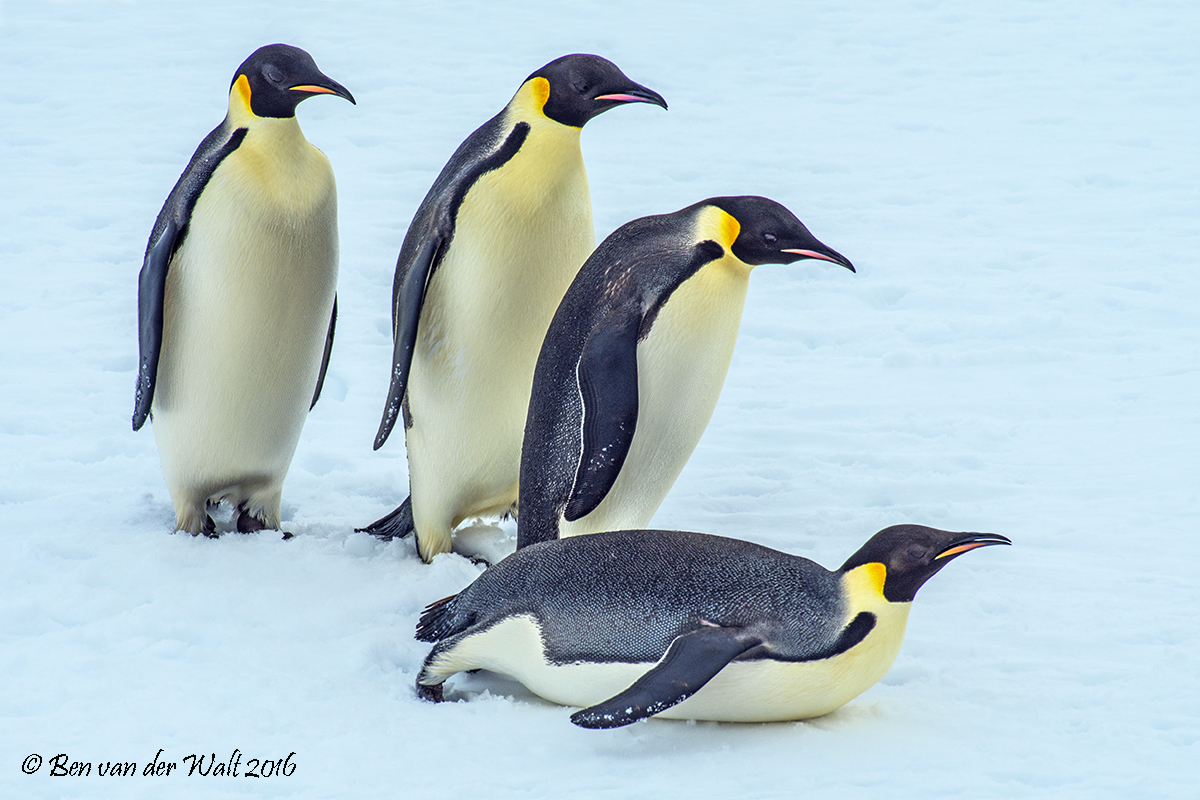
Photo Credit: Ben van der Walt
SANAP slogan “Understands, Develop and Conserve is celebrating World Wildlife Day 2020. 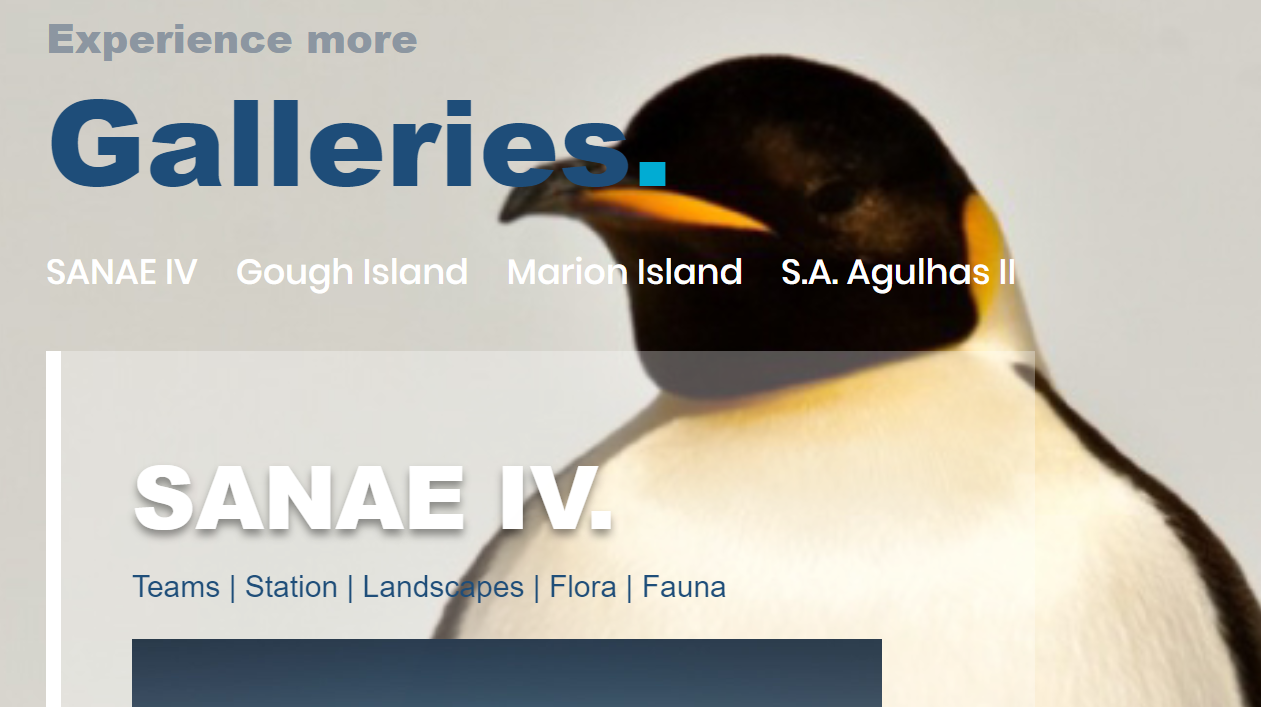 See amazing images on the SANAP website under galleries of the different stations of South Africa. Go to the ALSA archive and look for the interaction images of man and the environment
See amazing images on the SANAP website under galleries of the different stations of South Africa. Go to the ALSA archive and look for the interaction images of man and the environment


 My name is Khuselwa a.k.a. Kusi Ngxabani, Deputy Director: Vessel and Helicopter Management with effect from 01 September 2019. I joined the erstwhile Department of Environmental Affairs & Tourism in 1997 as an Administrative Clerk, in the Directorate: Antarctica and Islands, was promoted to Senior Administration Officer in 2003 and later promoted to the Assistant Director: Scientific Liaison and Administration Support position in the same directorate from 1 April 2008 to 31 May 2015. My directorate is dealing specifically with the South African National Antarctic Programme (SANAP). SANAP’s mandate is to provide logistical support to Researchers (Scientists). From 01 June 2015 I was promoted Deputy Director, heading the Sub-directorate: Travel and Fleet Services in the Directorate: Facilities and Administration Services (Cape Town) within the department. I served the aforementioned directorate until 31 August 2019.
My name is Khuselwa a.k.a. Kusi Ngxabani, Deputy Director: Vessel and Helicopter Management with effect from 01 September 2019. I joined the erstwhile Department of Environmental Affairs & Tourism in 1997 as an Administrative Clerk, in the Directorate: Antarctica and Islands, was promoted to Senior Administration Officer in 2003 and later promoted to the Assistant Director: Scientific Liaison and Administration Support position in the same directorate from 1 April 2008 to 31 May 2015. My directorate is dealing specifically with the South African National Antarctic Programme (SANAP). SANAP’s mandate is to provide logistical support to Researchers (Scientists). From 01 June 2015 I was promoted Deputy Director, heading the Sub-directorate: Travel and Fleet Services in the Directorate: Facilities and Administration Services (Cape Town) within the department. I served the aforementioned directorate until 31 August 2019. What drives your passion in the job you do in the department? (Image Kusi with departure of SANE59)
What drives your passion in the job you do in the department? (Image Kusi with departure of SANE59)
 What do you find most challenging and rewarding about working within SANAP?
What do you find most challenging and rewarding about working within SANAP? What would your advice be to those who want to follow the same career path as you?
What would your advice be to those who want to follow the same career path as you?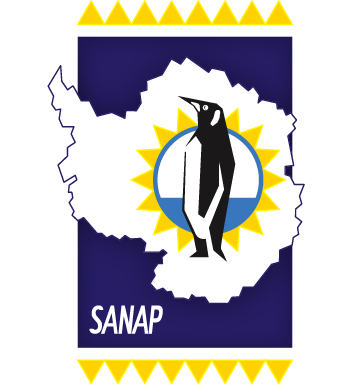

 freelance and volunteer work for SANAP. Alexander Oelofse is becoming a well-known name within the SANAP community. His
freelance and volunteer work for SANAP. Alexander Oelofse is becoming a well-known name within the SANAP community. His  realized that as freelancer he can be of great service to the community and to
realized that as freelancer he can be of great service to the community and to  that I would want to be in, or surrounded, by the ocean as much as possible. I wanted to study marine biology for a long time. Until job shadowing a marine biologist and realising much of the work would be lab-based. I couldn’t imagine that for myself. I then decided to pursue my other passion; photography. Being a member of the photographic society in high school sparked my interest. This led to me studying
that I would want to be in, or surrounded, by the ocean as much as possible. I wanted to study marine biology for a long time. Until job shadowing a marine biologist and realising much of the work would be lab-based. I couldn’t imagine that for myself. I then decided to pursue my other passion; photography. Being a member of the photographic society in high school sparked my interest. This led to me studying  While at University I already started trying to find a way onboard the S.A. Agulhas II. I had to see this stark, extreme and yet breathtakingly beautiful landscape for myself. It took a few years of applying, without succeeding, until I could get onboard the SEAmester III as a lecturer after my studies. Onboard students from various universities around South Africa get the opportunity to experience oceanographic research at its best, out in the field, onboard the
While at University I already started trying to find a way onboard the S.A. Agulhas II. I had to see this stark, extreme and yet breathtakingly beautiful landscape for myself. It took a few years of applying, without succeeding, until I could get onboard the SEAmester III as a lecturer after my studies. Onboard students from various universities around South Africa get the opportunity to experience oceanographic research at its best, out in the field, onboard the  He departed on the first leg of
He departed on the first leg of  “Seeing the ice shelf for the first time left me speechless. I became quite emotional, realising my dream had come true”.
“Seeing the ice shelf for the first time left me speechless. I became quite emotional, realising my dream had come true”.  “One of my highlights was getting to sit on the back of a snowmobile and traverse the snowy landscapes. Being the passenger allowed me to, despite the icy breeze, absorb the sublime landscapes that we passed through. This image was captured at 02:00 am. You could see the sun dip ever so slightly but never setting. I could get used to that. It made life seem endless, like there was no rush”
“One of my highlights was getting to sit on the back of a snowmobile and traverse the snowy landscapes. Being the passenger allowed me to, despite the icy breeze, absorb the sublime landscapes that we passed through. This image was captured at 02:00 am. You could see the sun dip ever so slightly but never setting. I could get used to that. It made life seem endless, like there was no rush”
 On
On 



 See amazing images on the SANAP website
See amazing images on the SANAP website 
